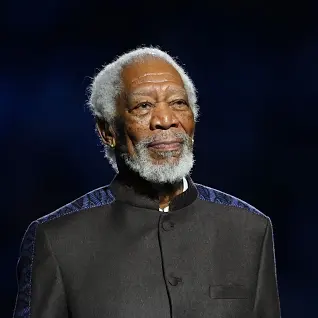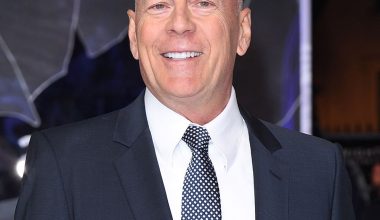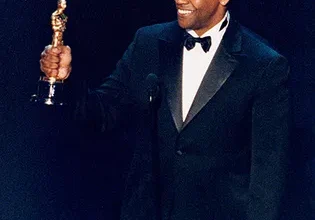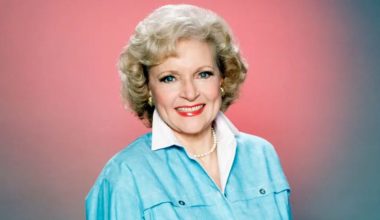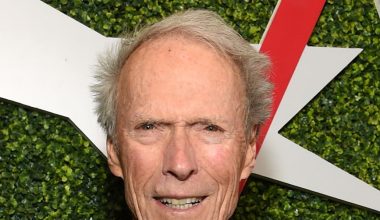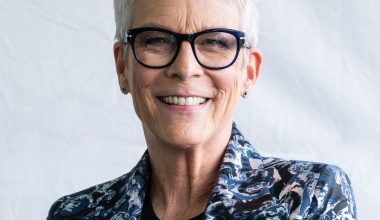American actor, producer, and narrator Morgan Freeman was born on June 1, 1937, and is well-known for his deep, unique voice. His part in the children’s television series The Electric Company brought him prominence in the 1970s. He had years of little roles and little success until he started to get major roles and receive praise from both the public and critics.
He has won various awards throughout the course of a five-decade career spanning several cinema genres, including the Academy Award, the Golden Globe Award, the Screen Actors Guild Award, and a nomination for a Tony Award.
Morgan Freeman Quick Facts
- Birth Name: Morgan Freeman
- Birth Date: June 1, 1937
- Birth Place: Tennessee, United States
- Gender: Male
- Career: Actor, producer, and narrator
- Most Known For: Actor Morgan Freeman has starred in movies including Lucy, Now You See Me, The Shawshank Redemption, Driving Miss Daisy, Glory, and The Dark Knight Trilogy. Well-known for his unique voice, he has narrated several documentaries, such as Life on Our Planet, Our Universe, and The Story of God with Morgan Freeman.
Early Life
On June 1, 1937, Freeman was born in Memphis, Tennessee. He is the son of barber Morgan Porterfield Freeman, who passed away from cirrhosis in 1961, and teacher Mamie Edna. He also has three older brothers and sisters. Freeman was taken to his paternal grandmother in Charleston, Mississippi, when he was a baby. During his early years, he moved about a lot, residing in Greenwood, Mississippi; Gary, Indiana; and Chicago, Illinois.
At nine years old, he played the lead in a school play for his acting debut. After that, he attended Broad Street High School in Greenwood, Mississippi, which is now known as Threadgill Elementary School. He found his music and theatre interest while adjusting to school, and at the age of twelve, he won a statewide play competition.
After completing his high school education in 1955, Freeman declined a Jackson State University partial theatre scholarship in favour of joining the US Air Force. He became an airman first class while working as an Automatic Tracking Radar repairman. He travelled to Los Angeles, California, after serving from 1955 to 1959, when he enrolled in acting training at the Pasadena Playhouse. At Los Angeles City College, where he also studied theatre arts, one of his teachers urged him to pursue a career in dance.
Early Career
Freeman participated at the 1964 World’s Fair as a dancer and performed with the San Francisco musical theatre company Opera Ring. He performed in a touring production of The Royal Hunt of the Sun and was an extra in The Pawnbroker, a 1965 drama film directed by Sidney Lumet and starring Rod Steiger.
Before making his Broadway debut in 1968’s all-black production of Hello, Dolly!, which also starred Pearl Bailey and Cab Calloway, Freeman had his Off-Broadway debut in 1967, opposite Viveca Lindfors in The Niggerlovers, a play about the Freedom Riders during the American Civil Rights Movement.
When he began frequently appearing on The Electric Company, a children’s TV program created by public television with an emphasis on teaching young viewers how to read, in 1971, he began to receive some national attention. Freeman played some of the most enduring roles on a program that featured future and present stars like Rita Moreno, Joan Rivers, and Gene Wilder, including “Count Dracula,” “Easy Reader,” and “Mel Mounds.”
But Freeman found that life on television was hard and demanding. Freeman tried to break into movies the way he wanted to, but he was never able to do so despite doing some stage work, including a Tony-nominated performance in The Mighty Gents in the late 1970s. Upon the cancellation of The Electric Company in 1976, Freeman found himself facing an unfulfilled career. His private life was suffering as well. Freeman started drinking excessively and discovered that his marriage was failing shortly before the final phase of the show.
When Freeman was cast as a crazy prisoner in Robert Redford’s 1980 picture Brubaker, his career took off. But the constant flow of film work Freeman had hoped for never materialized, and he was compelled to return to television, spending two arduous years as a cast member of the serial opera Another World.
Freeman played parts that brought him some recognition throughout the most of the remaining ten years, but not the big, important ones that would get A-list notice. In addition to narrating the TV miniseries The Atlanta Child Murders, he had a part in the 1984 Paul Newman picture Harry and Son.
In addition to television movies, Freeman portrayed a violent street hustler in the 1987 film Street Smart, which costarred Kathy Baker and Christopher Reeve and was a departure from his earlier performances. Freeman was nominated for an Academy Award for Best Supporting Actor as a result of his performance.
Breakthrough into Hollywood
In 1989, Freeman released four motion pictures. In the first, directed by Edward Zwick, he played Sergeant Major John Rawlins in the film Glory. Freeman co-starred with Jessica Tandy and Dan Aykroyd in the comedy-drama Driving Miss Daisy. In this adaptation of Alfred Uhry’s play of the same name, which Freeman had previously acted in, he plays the part of a Jewish widow’s driver, Hoke Colburn. The movie brought in a total of US$145 million worldwide and was a commercial success.
In his third film, the biographical drama Lean on Me, he plays the principal of a low-achieving, drug- and crime-ridden high school in New Jersey.
In the 1990 television miniseries The Civil War, which was based on the American Civil War, Freeman voiced Frederick Douglass. He also acted in the highly acclaimed film The Bonfire of the Vanities the same year. Freeman appeared in a supporting part in Kevin Costner’s action-adventure Robin Hood: Prince of Thieves in 1991.
He starred alongside Stephen Dorf and John Gielgud in Clint Eastwood’s 1992 western Unforgiven, which took home four Academy Awards, including Best Picture. Alongside Tim Robbins, Freeman played Red, the rehabilitated prisoner in Frank Darabont’s critically acclaimed movie The Shawshank Redemption in 1994.
Freeman starred in the following films from 1995 to 2000: Deep Impact (1998), Chain Reaction (1996), David Fincher’s criminal drama Seven (1995), Outbreak (1995), and a science-fiction catastrophe picture. In 2000, Freeman made a comeback to the cinema as Charlie in the comedy Nurse Betty.
Continued Fame
In the comedy Bruce Almighty from 2003 and its follow-up Evan Almighty from 2007, Freeman was an obvious choice to represent God because of his powerful voice and authoritative demeanour. Freeman received an Oscar in 2005 for his performance in Clint Eastwood’s Million Dollar Baby as Best Supporting Actor.
Later, for the hugely successful sequels The Dark Knight (2008) and The Dark Knight Rises (2012), he returned to the role of Lucius Fox from Batman Begins (2005). Additionally, he starred alongside Bruce Willis in the action-thriller Red (2010) and Rob Reiner’s The Bucket List (2007).Freeman won the Cecil B. DeMille Award for his exceptional achievements to the entertainment industry at the 2012 Golden Globes.
Freeman also serves as a perfect fit for narration because of his expressive, articulate voice. His voice could be heard in iconic movies as the Academy Award–winning documentary March of the Penguins and the War of the Worlds. He also took over Walter Cronkite’s voice in 2010 to introduce CBS Evening News anchor Katie Couric. Freeman reteamed with Eastwood in 2009 to play South African President Nelson Mandela in the film Invictus, which nominated him for an Oscar in the Best Actor category.
A few years later, he starred in the sci-fi blockbuster Lucy (2014), the comedy Last Vegas (2013), the action-thriller Olympus Has Fallen (2013), and the voice actor for the animated feature The Lego Movie (2014). He co-executive produces the television series Madam Secretary, for which he portrayed the Chief Justice of the United States in 2015.
In September of 2016, President Barack Obama gave Freeman the National Medal of Arts the following year. President Obama announced during the event that Freeman was receiving recognition for his exceptional work as an actor, director, and storyteller. His renowned performances on stage and cinema have captivated audiences worldwide by bringing to life characters from all facets of human existence.
2017 – Recent Times
Freeman starred in two comedies in 2017: Just Getting Started and Going in Style. In 2016 and 2017, respectively, Freeman hosted the National Geographic shows The Story of God with Morgan Freeman and The Story of Us with Morgan Freeman. Alpha, a historical drama set in the last ice age, was narrated by Freeman in 2018.
After that, he played the lead role in Disney’s adaptation of the short story by E. T. A. Hoffmann, The Nutcracker and the Four Realms. In the Richard Salvatore novel adaption The Poison Rose (2019), Freeman featured opposite John Travolta. After Olympus Has Fallen and London Has Fallen, Freeman returned to the character of Allan Trumbull in Angel Has Fallen, the third movie in the Has Fallen film series.
Subsequently, Freeman starred with a group of actors in George Gallo’s criminal comedy The Comeback Trail (2020) and in the sequel to the 1988 movie Coming 2 America (2021). Freeman and Ghanim Al-Muftah had a performance at the 2022 FIFA World Cup opening ceremony in Qatar on November 20, 2022.
Personal Life
From October 22, 1967, to November 18, 1979, Freeman was wed to Jeanette Adair Bradshaw. On June 16, 1984, he wed Myrna Colley-Lee. On September 15, 2010, the couple filed for divorce after splitting in December 2007. Morgana, Saifoulaye, Deena, and Alfonso are Freeman’s four children.
Conclusion
Freeman has captivated audiences with his deep voice and compelling performances. Despite facing personal and professional challenges, he has earned critical acclaim and numerous awards, including an Academy Award. His diverse roles in films like “The Shawshank Redemption,” “Driving Miss Daisy,” and “The Dark Knight Trilogy,” as well as his work as a narrator, have solidified his status as a versatile and respected figure in the entertainment industry. Freeman’s journey reflects the power of perseverance and the impact of a singular talent on the world of cinema.
